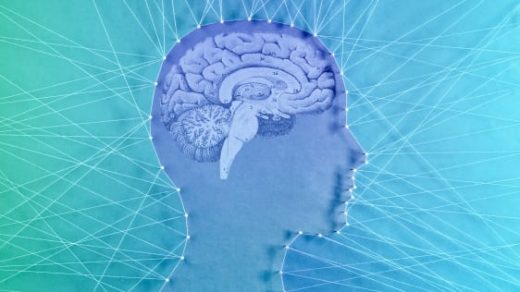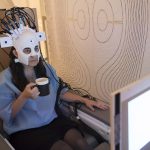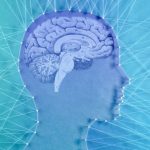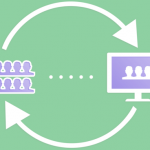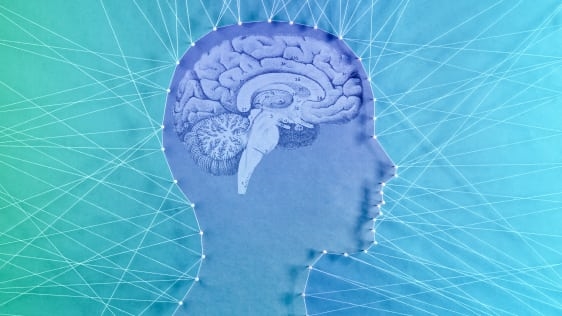Why Your Brain Clings To False Beliefs (Even When It Knows Better)
How do you calculate a dog’s age in human years? Most people think you just multiply by seven, but they’re wrong. It’s just a made-up number that’s been circulating since the 13th century. Where did we get beliefs like this, and how do they persist for so long? The short answer: Blame your brain.
Now here’s the long one.
Why Your Brain Likes To Think Stuff Is True
We form beliefs in a haphazard way, believing all sorts of things based just on what we hear out in the world but haven’t researched for ourselves.
This is how we think we form abstract beliefs:
- We hear something;
- We think about it and vet it, determining whether it is true or false; only after that
- We form our belief.
It turns out, though, that we actually form abstract beliefs this way:
- We hear something;
- We believe it to be true;
- Only sometimes, later, if we have the time or the inclination, we think about it and vet it, determining whether it is, in fact, true or false.
Back in 1991, Harvard psychologist Daniel Gilbert summarized centuries of research on belief formation this way: “People are credulous creatures who find it very easy to believe and very difficult to doubt. In fact, believing is so easy, and perhaps so inevitable, that it may be more like involuntary comprehension than it is like rational assessment.”
Two years later, Gilbert and colleagues demonstrated through a series of experiments that our default is to believe that what we hear and read is true. Their subjects read a series of statements about a criminal defendant or a college student. These statements were color-coded to make it clear whether they were true or false. Subjects under time pressure or who had their cognitive load increased by a minor distraction made more errors in recalling whether the statements were true or false.
But the errors weren’t random. Under any sort of pressure, they presumed all the statements were true, regardless of their labeling.
Humans Like Efficiency, Not Accuracy
How we form beliefs was shaped by the evolutionary push toward efficiency rather than accuracy. Abstract belief formation (that is, beliefs outside our direct experience, conveyed through language) is likely among the few things that are uniquely human, making it relatively new in the scope of evolutionary time.
Before language, our ancestors could form new beliefs only through what they directly experienced of the physical world around them. For perceptual beliefs from direct sensory experience, it’s reasonable to presume our senses aren’t lying. Seeing is, after all, believing. In fact, questioning what you see or hear can get you eaten. For our evolutionary ancestors, it was better to be safe than sorry, especially when considering whether to believe that rustling in the grass is a lion.
As a result, we didn’t develop a high degree of skepticism when our beliefs were about things we directly experienced, especially when our lives were at stake. As complex language evolved, we gained the ability to form beliefs about things we hadn’t actually experienced for ourselves–and tended to believe them just as strongly.
Your Brain Won’t Update False Beliefs, But You Still Can
Maybe it’s no big deal. Most people aren’t using a bogus dog-age calculator to make medical decisions for their pets, and veterinarians know better. The bigger risk is in failing to update our beliefs when new information arises–and indeed, we know a lot more about dogs today than our medieval ancestors did. Unfortunately, we still form beliefs without vetting most of them, and maintain them even after receiving clear, corrective information.

In 1994, researchers Hollyn Johnson and Colleen Seifert asked study subjects to read messages about a warehouse fire. Some messages mentioned that the fire started near a closet containing paint cans and pressurized gas cylinders, encouraging them (predictably) to infer a connection. When, five messages later, subjects received a correction stating that the closet was empty, they still answered questions about the fire by blaming burning paint for toxic fumes and citing negligence for keeping flammable objects nearby. It turns out that truth seeking–the desire to know the truth regardless of whether it aligns with the beliefs we currently hold–is actually opposed to way our brains process information.
So step in and help your brain out. The next time you argue with someone about something you believe to be true, step back and ask yourself how you came to this conclusion. Sometimes all it takes is applying a dose of skepticism to your own belief–so you can pause to consider changing your mind.
This article is adapted from Thinking In Bets: Making Smarter Decisions When You Don’t Have All The Facts. It is reprinted with permission from Portfolio/Penguin, an imprint of Penguin Random House LLC
Fast Company , Read Full Story
(50)

